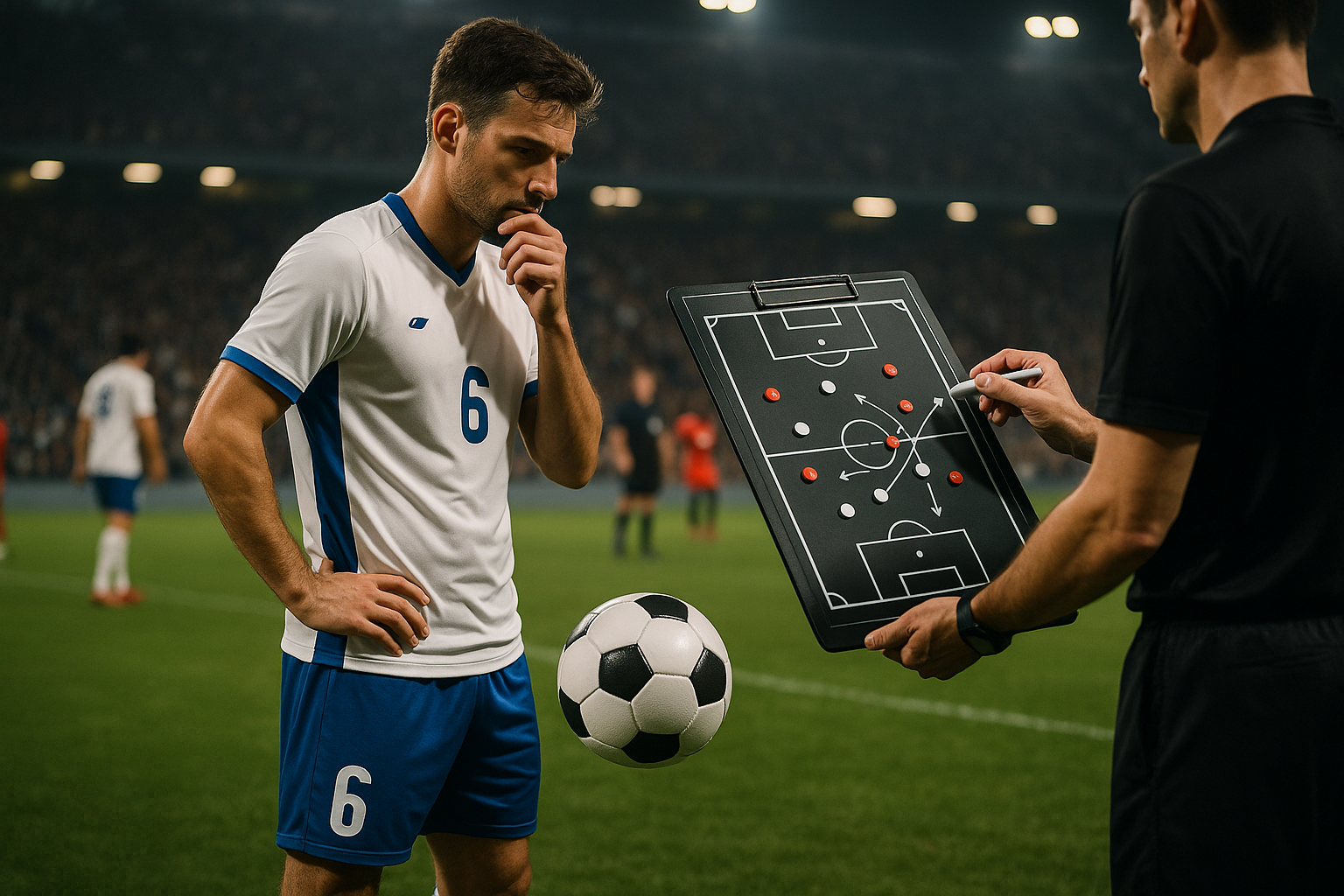Different Types Of Soccer Camps For Players
Soccer camps give players a chance to train, meet new friends, and enjoy the sport in an organized setting. There are many types of camps, such as day camps, overnight camps, and skill-focused programs. Each offers activities that help players improve their game, from learning basic techniques to practicing team play. This article explains the main kinds of soccer camps, what usually happens at them, and how they can support both learning and fun during school breaks or summer vacation.

Youth Soccer Training Programs for Skill Development
Youth soccer training programs form the foundation of many soccer camps, focusing on age-appropriate skill development. These programs typically group players by age and ability, ensuring each child receives instruction tailored to their developmental stage. Beginning players focus on fundamental skills like passing, trapping, and basic positional awareness, while more experienced youth athletes work on advanced techniques such as defensive positioning, offensive strategies, and specialized skills.
Many youth programs implement small-sided games that maximize ball touches and decision-making opportunities. This approach allows players to develop technical skills in realistic game situations rather than isolated drills. Progressive training methodologies ensure that as players demonstrate mastery of basic skills, they can advance to more complex concepts, creating a continuous improvement pathway.
Summer Soccer Camps: Intensive Training Opportunities
Summer soccer camps offer immersive experiences that accelerate skill development during school breaks. These camps typically run for multiple days or weeks, providing concentrated training that can significantly impact player development. The extended format allows coaches to implement comprehensive curricula covering technical skills, tactical understanding, physical conditioning, and mental aspects of the game.
Day camps provide structured training during daytime hours, allowing players to return home each evening. These programs typically run from morning until late afternoon, filling each day with skill-building activities, small-sided games, and tactical instruction. For families seeking an even more immersive experience, residential summer camps offer players the opportunity to live on-site, usually at college campuses or dedicated sports facilities, creating a total soccer environment that extends beyond daytime training.
Soccer Skills Development Camps for Specialized Training
Skills development camps focus on specific aspects of soccer performance rather than general play. Goalkeeper camps provide specialized training for this unique position, covering techniques like proper positioning, diving, ball handling, and distribution. Striker camps emphasize finishing techniques, timing of runs, and creating scoring opportunities. Defensive specialty camps focus on tackling technique, defensive positioning, and building play from the back.
These specialized camps often employ coaches with professional experience in the particular position or skill area. The concentrated focus allows players to make significant improvements in specific aspects of their game that might receive limited attention during regular team practices. Many skills development camps incorporate video analysis, allowing players to review their technique and receive detailed feedback for improvement.
Soccer Coaching Programs with Professional Instruction
Soccer camps featuring professional instruction provide exposure to high-level coaching methodologies and training approaches. These programs often employ current or former professional players, collegiate coaches, or certified instructors with advanced licenses from organizations like the United States Soccer Federation or UEFA. The expertise these coaches bring creates valuable learning opportunities that extend beyond what many youth players experience in their regular team environments.
Professional instruction often incorporates modern training methodologies based on sport science principles. These approaches might include periodized training plans, tactical periodization, or game-based coaching models that maximize transfer from practice to match performance. Many professional coaching programs also introduce players to video analysis, performance metrics, and other advanced tools used at higher levels of the sport.
Soccer Camps for Kids: Balancing Fun and Skill Building
Soccer camps designed specifically for younger participants prioritize fun while laying the groundwork for future skill development. These programs typically feature age-appropriate activities that maintain engagement through playful approaches to learning the game. Rather than focusing exclusively on technical drills, these camps incorporate games that develop soccer skills within enjoyable contexts.
For many young players, these camps provide their first introduction to structured soccer training outside recreational league play. Coaches in youth-focused camps typically have experience working with children and understand developmental considerations for this age group. The emphasis remains on creating positive experiences that foster love for the game while gradually building fundamental movement skills and basic soccer techniques through activities that feel more like play than formal instruction.
Specialized Soccer Camp Formats and Options
Soccer camps come in various formats to accommodate different schedules, goals, and commitment levels. Single-day clinics provide focused instruction on specific aspects of the game without requiring extended time commitments. Weekend camps offer more comprehensive training experiences while still fitting into busy family schedules. Elite residential camps, often lasting one to three weeks, provide the most immersive experience for serious players looking to maximize development.
| Camp Format | Duration | Key Features | Typical Age Range |
|---|---|---|---|
| Day Camps | 5-8 hours daily | Local venues, daily themes, no overnight stay | 6-16 years |
| Residential Camps | 1-3 weeks | Overnight accommodation, full immersion, expanded curriculum | 10-18 years |
| Elite ID Camps | 1-5 days | College coach exposure, advanced training, potential recruitment | 14-18 years |
| Position-Specific | 1-5 days | Focused on single position, specialized coaches, intensive skill work | 10-18 years |
| Team Camps | 2-7 days | Entire teams participate together, tactical emphasis, team bonding | 10-18 years |
Soccer camps have evolved to meet diverse player needs, from beginners seeking a fun introduction to the sport to elite athletes pursuing college scholarships or professional opportunities. The variety of formats ensures that virtually any young player can find a camp experience aligned with their development goals, schedule constraints, and current ability level. By selecting the appropriate type of soccer camp based on age, skill level, and specific objectives, players can accelerate their development while fostering deeper appreciation for the beautiful game.




